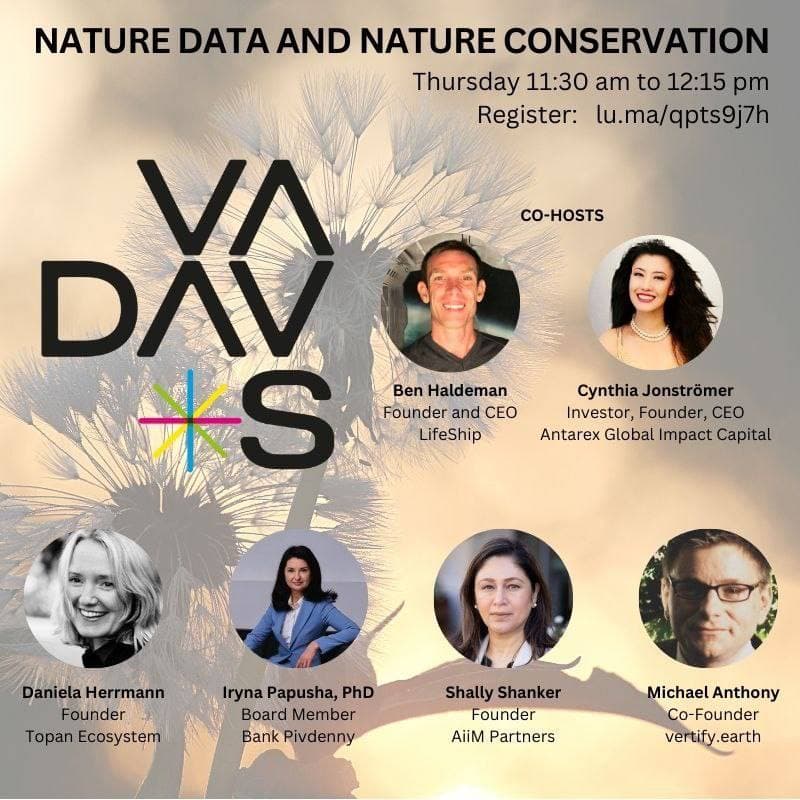top of page
THU 18
unDavos Summit 2024
SONAS
THUR 18.JAN 09:00 - 09:45
SPEAKER TBA
Join us for an engaging panel discussion that explores the transformative impact of AI in the healthcare industry. AI has the potential to revolutionize medicine, from improving diagnosis and treatment to enhancing patient care. However, it also presents ethical, regulatory, and accessibility challenges that demand our attention.
Panel Topics:
Diagnostic Precision: How AI is revolutionizing medical imaging, enabling early disease detection, and enhancing accuracy in diagnosis.
Personalized Medicine: Explore how AI-driven approaches are tailoring treatment plans to individual patients, improving outcomes, and minimizing side effects.
Drug Discovery Acceleration: Understand how AI is expediting drug discovery, reducing costs, and bringing life-saving medications to market faster.
Ethical and Privacy Concerns: Delve into the ethical implications of AI-driven decision-making in healthcare and the importance of data privacy and security.
Regulatory Frameworks: Discuss the challenges of developing effective regulations to ensure the safe and responsible use of AI in healthcare.
Accessibility and Equity: Explore how to make AI-driven healthcare solutions affordable and accessible to all, especially in underserved communities.
Impact on Healthcare Professionals: Address the evolving roles of healthcare professionals in the AI-driven healthcare landscape.
Long-Term Effects: Consider the long-term implications of AI in healthcare, including its societal impact and potential job displacement.
Why Attend:
This panel will provide valuable insights into the promises and challenges of AI in healthcare. Whether you are a healthcare provider, a technology enthusiast, a policymaker, or simply interested in the future of medicine, this discussion will shed light on the rapidly evolving landscape of AI in healthcare and its implications for society.
Don't miss this opportunity to join the conversation and gain a deeper understanding of how AI is reshaping the future of healthcare!
Speakers to be announced
Part of the unDavos Summit and the AI in Action seriesshort and sweet description soon!
SONAS
THUR 18.JAN 11:00 - 11:45
SPEAKER TBA
AI for Good - An exploration of use cases
Session curated by ImpactScope
11.00 to 11.05
Sean Murphy – ImpactScope – Opening words and introduction
11.05 to 11.15
Diana Rose – Insig AI – Transparency and disclosure index
11.15 to 11.25
Michele Soavi – ImpactScope – GWI: detecting greenwashing instances
11.25 to 11.35
Fred Werner – UN ITU – The AI for Good initiative
11.35 to 11.50
Panel: Identifying AI for Good use cases
Speakers: Diana Rose (Insig AI), Fred Werner (UN ITU), Michele Soavi (ImpactScope)
More speakers soon.
MOUNTAIN PLAZA SERTIG 1
THUR 18.JAN 10:45 - 11:30
SPEAKER TBA
Immerse yourself in the critical topic of ocean conservation at the unDavos Oceans Panel. This event features marine biologists, environmentalists, policy makers, and advocates dedicated to the health and sustainability of our oceans. It's a deep dive into the challenges, innovations, and collaborative efforts needed to protect and preserve our marine environments.
MOUNTAIN PLAZA SERTIG 1
THUR 18.JAN 11:30 - 12:15
SPEAKER TBA
Nature conservation (including indigenous practices) are vital for maintaining the health of our planet and the wellbeing of all its inhabitants, including us humans. Collecting nature data supports these efforts by providing the necessary information for effective management and conservation strategies.
• Biodiversity Preservation: Conserving nature helps protect the vast array of species living on Earth, each playing a unique role in the ecosystem. Biodiversity ensures ecological balance and the resilience of ecosystems.
• Climate Regulation: Natural ecosystems like forests, oceans, mangroves, peatland and wetlands play a critical role in regulating the climate by absorbing carbon dioxide, a major greenhouse gas.
• Sustenance of Human Life: Humans rely on nature for food, water, medicine, and raw materials. Healthy ecosystems are essential for clean air and water, soil fertility, and pollination of crops.
• Cultural and Spiritual Values: Nature is deeply intertwined with the culture and spirituality of many communities, especially indigenous peoples. Their traditional practices often contribute to the sustainable management of natural resources.
• Scientific Understanding and Education: Nature offers endless opportunities for scientific research, learning, and inspiration. Understanding nature is crucial for developing sustainable technologies and practices.
Collecting nature data is imperative. AI would play an important role here:
• Monitoring Changes: Climate change would cause even more Climate refugees. The consequences would create resource scarcity, social and political challenges, and potentially wars. Data helps in monitoring changes in ecosystems, species populations, climate patterns, and the impact of human activities.
• Informed Decision Making: Accurate data is essential for making informed conservation decisions and policy formulations.
• Identifying Threats: Continuous data collection helps identify emerging threats to biodiversity, such as new invasive species or disease outbreaks.
• Evaluating Conservation Strategies: Data allows for the evaluation of the effectiveness of conservation strategies and the need for adjustments.
• Raising Awareness: Human are biased and emotional. Imperative Data and its analysis can help in raising public awareness about the state of the environment and the importance of conservation efforts.
Indigenous practices are important in nature conservation, however is often being ignored. Indigenous practices offer many invaluable contributions, such as:
• Traditional Knowledge: Indigenous communities possess extensive knowledge about their local environments which was gained over generations. This knowledge is invaluable in understanding complex ecosystems and managing them sustainably.
• Sustainable Practices: Many indigenous practices are inherently sustainable, evolved to live in harmony with nature. They offer models for resource use that do not deplete these resources over time.
• Stewardship of the Land: Indigenous peoples have historically been stewards of their lands, often managing them in ways that maintain and enhance biodiversity.
Collecting nature data is imperative. AI would play an important role here:
• Monitoring Changes: Climate change would cause even more Climate refugees. The consequences would create resource scarcity, social and political challenges, and potentially wars. Data helps in monitoring changes in ecosystems, species populations, climate patterns, and the impact of human activities.
• Informed Decision Making: Accurate data is essential for making informed conservation decisions and policy formulations.
• Identifying Threats: Continuous data collection helps identify emerging threats to biodiversity, such as new invasive species or disease outbreaks.
• Evaluating Conservation Strategies: Data allows for the evaluation of the effectiveness of conservation strategies and the need for adjustments.
• Raising Awareness: Human are biased and emotional. Imperative Data and its analysis can help in raising public awareness about the state of the environment and the importance of conservation efforts.
MOUNTAIN PLAZA SERTIG 2
THUR 18.JAN 09:30 - 10:45
SPEAKER TBA
The format is facilitated speed networking with small groups of 4-5 people gathered in a ‘Davos Shuttle’ seating space to have the classic Davos networking and pitch experience. There is no tech support - and no opportunity to speak or pitch to the group – the classic Davos way works exceptionally well to establish meaningful productive relationships.
Please arrive 5 – 10 min before your Track starts. You would be offered a colored badge based on the information you provided at the signup.
MOUNTAIN PLAZA SERTIG 2
THUR 18.JAN 11:15 - 12:30
SPEAKER TBA
The format is facilitated speed networking with small groups of 4-5 people gathered in a ‘Davos Shuttle’ seating space to have the classic Davos networking and pitch experience. There is no tech support - and no opportunity to speak or pitch to the group – the classic Davos way works exceptionally well to establish meaningful productive relationships.
Please arrive 5 – 10 min before your Track starts. You would be offered a colored badge based on the information you provided at the signup.
bottom of page







